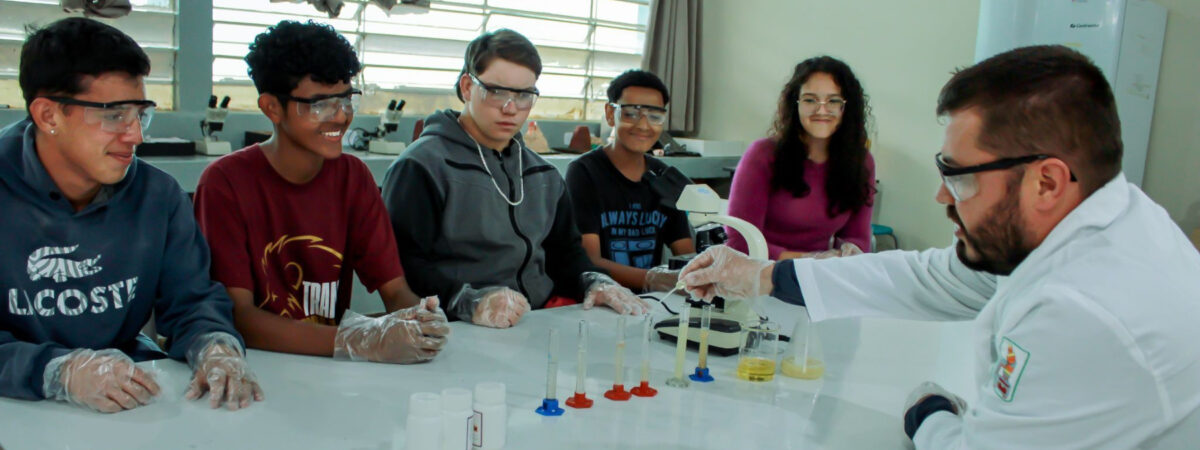
From an anti-vaping campaign in Colorado (United States) to an interception device to prevent garbage from entering the ocean in Kaohsiung (Taiwan), the projects featured in this series exemplify core elements of the Challenge, including creative use of technology, social purpose, sustainability and scaling, and student agency and leadership. These elements are top of mind for Ciena staff who volunteer their time and experience each year to review and provide thoughtful feedback on projects submitted by student teams from around the world.
As the next Ciena Solutions Challenge submission deadline on March 12, 2024 draws closer, we’re sharing insights from the series to inspire educators and students who are making a difference in their communities and want to apply for $2,500 USD in funding to sustain and scale their projects.
Following the inclusion of heritage studies in the Zimbabwe curriculum, students at Eveline High School in Bulawayo, Zimbabwe, recognized a scarcity of related print and digital materials and leveraged low-cost technologies to tap community knowledge and heritage to create related educational audio content.
At Ngora Girls Secondary School in Uganda, students used technology to research hidden hunger and explore DIY sustainable gardening practices, then created vegetable gardens and launched a storytelling campaign using community radio to share what they learned.
Students at Vikas Bharati Public School in India leveraged open source software, sensors, microcontrollers, and other tools to explore and develop a variety of projects, including an AI sensor boat to protect aquatic animals and water quality and automated dustbins.
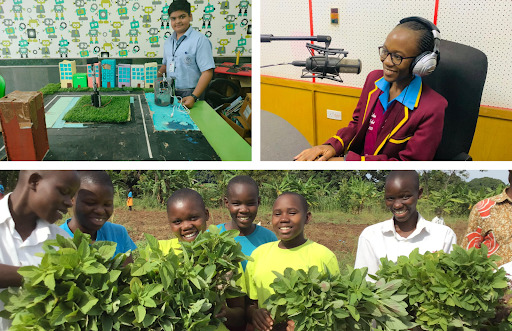
Students proudly show their projects. From left: A student at Vikas Bharati Public School; a student at Eveline High School; and students from Ngora Girls Secondary School.
Seeking to address high rates of malnutrition in their community, students at Santamayee Girls High School in India conducted community interviews and connected with nutritionists, ultimately discovering ring pisciculture, or fish farming, as a response.
In Kazakhstan, students at Nazarbayev Intellectual School of Chemistry and Biology created educational flashcards in Kazakh and Russian after observing a lack of visual material on environmental education for kindergarten and primary school children.
Students at PEI Simpliciano Campolim de Almeida in Brazil evaluated entrepreneurial opportunities related to socially responsible travel in their community and created a prototype for an ecotourism app for their town.
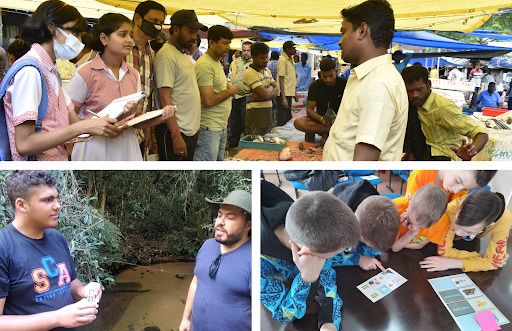
Photos of students as they go through their project process. From top: Students at Santamayee Girls High School; Students at PEI Simpliciano Campolim de Almeida; and students at Nazarbayev Intellectual School of Chemistry and Biology.
Students at Benjamin E. Mays High School in Atlanta, Georgia, were inspired by issues that impact their daily lives, including mental health and food disparities. They used these topics to create podcasts like “Health Is Wealth,” a discussion about the mental health of athletes and “Hands to Heart,” an organization that supports and facilitates healing for trauma victims.
Students at Peak to Peak High School in Boulder County, Colorado, used design thinking to address the impact of the devastating Marshall Fire in their community, ultimately hosting an Eco-Justice Fashion Show to raise awareness about climate change and help dispel gender stereotypes associated with STEM.
In Taiwan, students at Affiliated Senior High School of National Kaohsiung Normal University grew concerned about marine debris and the inefficiency of manual trash removal they experienced during beach cleanups. In response, they designed a Capture Zone System garbage interception device to prevent river trash from entering the ocean.
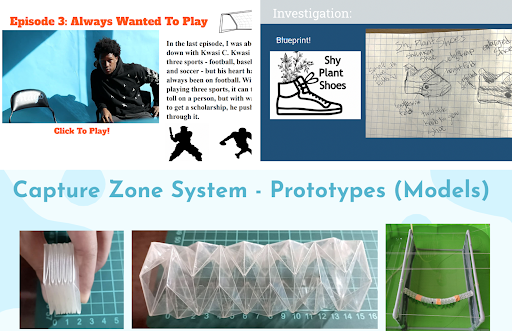
Slides from students’ presentations about their projects. From top left: A podcast by students at Benjamin E. Mays High School; a blueprint for sustainable shoes from Peak to Peak High School; and a prototype of a capture system from students at Affiliated Senior High School of National Kaohsiung Normal University.
The IQ Interschool Challenge TV program started during the COVID-19 pandemic when the Tanzania English Language Teachers Association used Facebook Live to support at-home learning. When Star TV offered free airtime, the idea expanded. Partnerships continue to drive the program’s growth, with community members lending support and the American Corner Space in Mwanza providing additional space for recording episodes.
During the COVID pandemic, many schools were the first institutions to be closed and the last to reopen, affecting the mental health of students worldwide. In response, students at Centro de Mídias da Educação in Brazil transformed unused space at their school into a Safe Zone to foster community and connections.They continue to refine the initiative, seeking support from the Secretary of Education and media to expand it across São Paulo.
The lack of digital material available about their Indigenous community was both a problem and an opportunity for students at the Institución Educativa Rufino José Cuervo Centro in Colombia. Students engaged in community research and digital storytelling to become leaders who contribute to their community’s knowledge of Indigenous customs and food heritage.
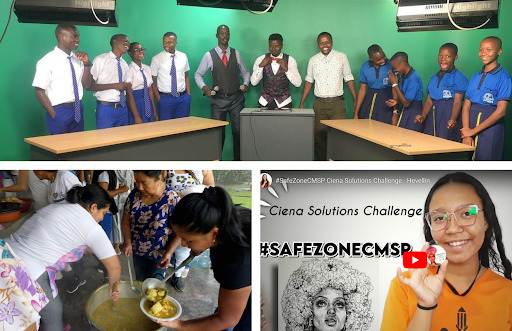
From top: Students in the IQ Interschool Challenge in Tanzania record at a studio; Students’ intergenerational project takes place at Institución Educativa Rufino José Cuervo Centro; a screenshot of a presentation on safe zones by a student at Centro de Mídias da Educação in Brazil.

We want to hear from you!
Please take this 5-minute survey and help us serve you better.
